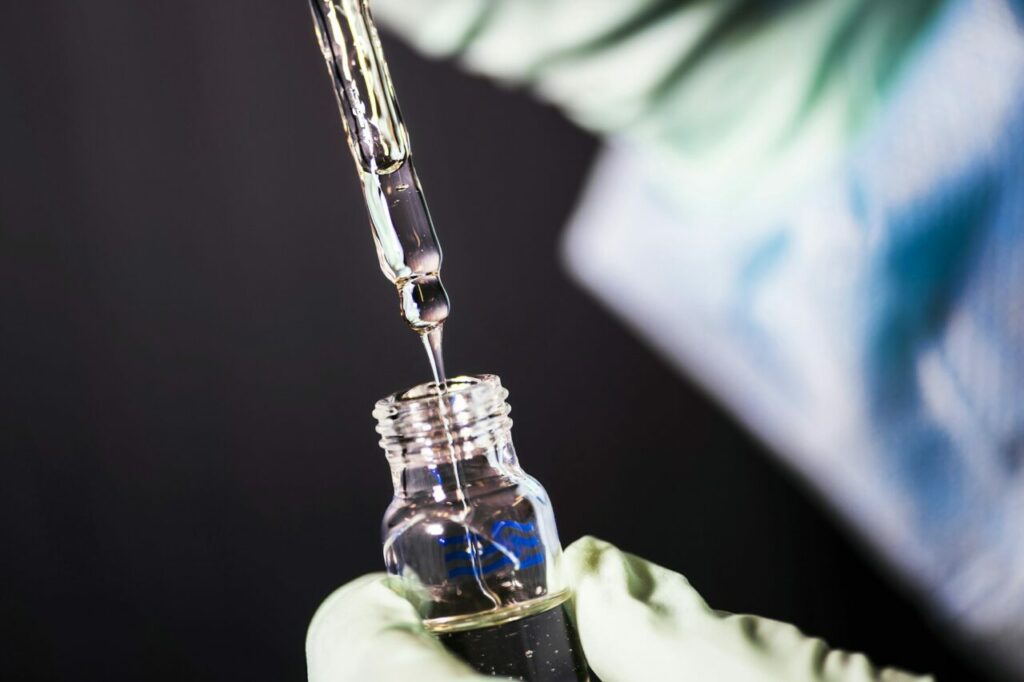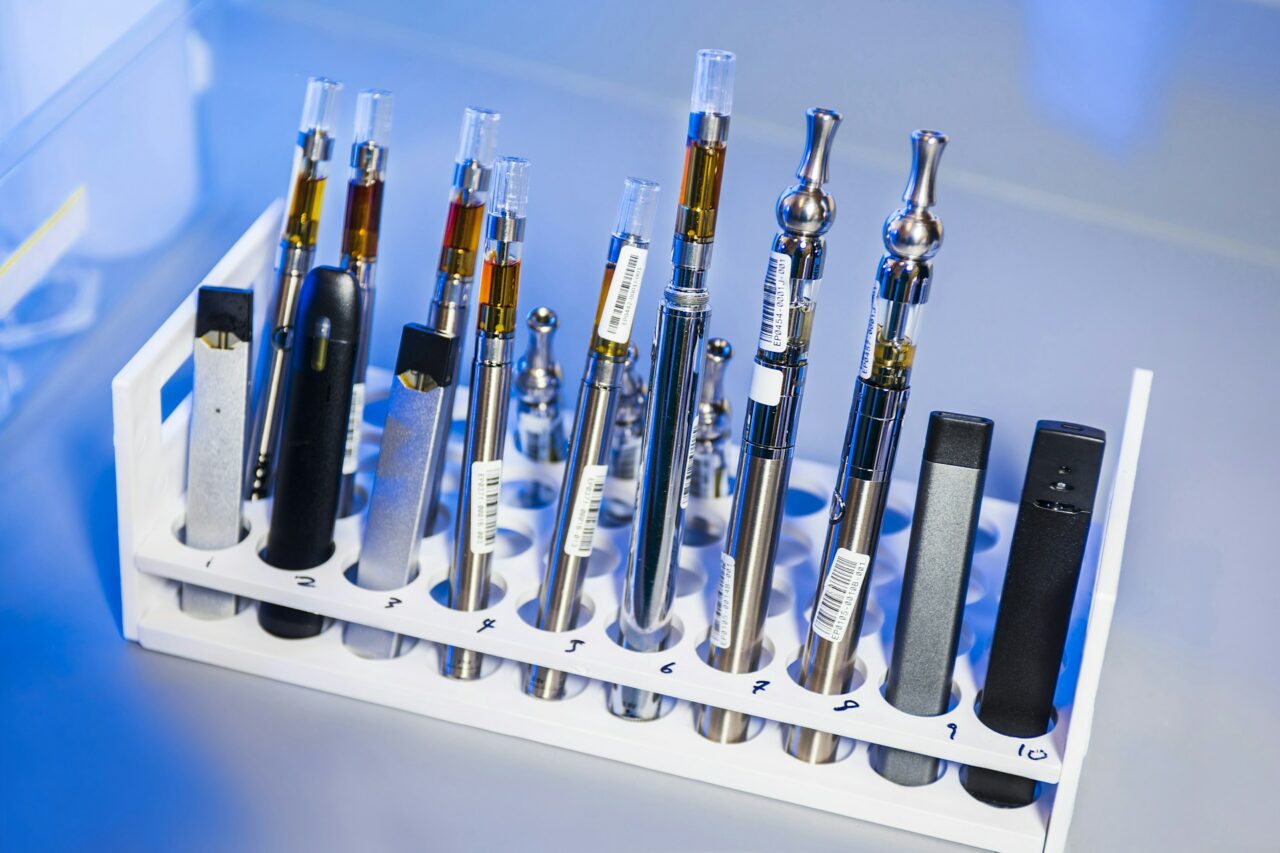The Drug Enforcement Administration (DEA) is intensifying production quotas for innovative substances such as the DMT vape pen, marijuana, and other psychedelics. With Canada leading the way, an exciting new epoch of understanding is about to unfold.
The recent announcement of increased production for certain substances sets the stage for unprecedented research opportunities.
Key Highlights:
- The DEA intends to raise production caps to 20,000 grams of psilocybin and 11,000 grams of dimethyltryptamine by 2024.
- The spirit molecule disrupts repetitive thoughts and enhances brain and cognitive function.
- A proposed increase in these substances could advance medical science and pave the way for cost-effective alternative treatments.
DEA’s 2024 Vision: A Leap into the Future of Psychedelics
In a major step towards boosting research capabilities, the DEA’s recent proposal calls for a rise in the production of certain controlled substances for scientific exploration in 2024. This reflects a growing recognition of the need for larger quantities to meet medical and research needs.
Proposal Details
The revised proposal significantly increases production quotas, showing a heightened commitment to clinical trials. For instance, the target for certain substances has nearly doubled, setting the production limit at 20,000 grams for psilocybin and 11,000 grams for DMT vape cartridges.
These changes are a direct response to feedback from registered manufacturers, who emphasized the need for more substantial quantities to support ongoing and future research. The production targets for related compounds remain at previously high levels to ensure a steady supply for therapeutic studies.
Potential Benefits for Scientific Research and Therapeutic Uses
The increased availability of these substances could pave the way for new scientific pursuits, particularly in uncovering their therapeutic potential. As research continues to accumulate, scientists may unveil revolutionary treatments for various conditions, including mental health disorders.
This enhanced focus could not only expand our knowledge but also align with the growing public interest in alternative treatments. These changes could propel medical science forward, offering more cost-effective therapeutic alternatives than traditional methods. treatments.
Navigating the Unknown: Current and Future Research on Dimethylamine and Psychedelics in Canada
Canada is experiencing a growing interest in exploring non-traditional therapy options, with recent developments suggesting a potential transformation in mental health treatment.
In 2021, there was a significant rise in interest for substances acclaimed for their psychological benefits, even though there was a subsequent market slowdown. However, ongoing clinical trials continue to produce promising results.

Current State of Affairs
On December 5th, 2022, Health Canada released a Notice to Stakeholders outlining expectations for risk-management strategies in clinical trials involving psychedelic-assisted psychotherapy. In Canada, different provinces have varying approaches to the regulation of psychedelics and their research:
| Ontario | The Centre for Addiction and Mental Health (“CAMH”) received the first Canadian federal grant to conduct research on psilocybin. |
| Alberta | Approval has been granted for the therapeutic use of certain psychedelics, including psilocybin, psilocin, ketamine, LSD, MMDA and DMT. |
| University of Guelph | Received authorization from Health Canada to grow psilocybin-containing mushrooms |
| Saskatchewan | The Linden Medical Centre offers help for individuals with PTSD to access psychedelics |
| New Brunswick | Home to a series of private clinics offering PTSD treatment with ketamine |
| British Columbia | Has decriminalized personal possession of certain substances |
| Quebec | Mindspace by Numinus legally administers psilocybin and MDMA for the treatment of treatment-resistant depression and PTSD. |
Potential Areas of Research
There are numerous potential research areas emerging, particularly concerning the therapeutic applications of dimethyltryptamine and psilocybin. As the body of evidence supporting their efficacy continues to expand, future research could investigate:
She reports that each use of the DMT vape pen cartridges offers a distinct and unique experience. “With the initial puff, I enter a state of intense relaxation and colors become remarkably vibrant,” she describes. “I feel as though I’m floating in water, yet held securely by an invisible force.“
Entrepreneur Tim Leonard describes an extremely powerful experience: “I felt as though my soul left my body and entered a realm that can only be described as divine.” He witnessed “a semi-transparent human skull with a brain radiating colors and energy,” providing a profound understanding of the marvel of human existence.
The Rise of Vapour Pens: A Guide for Conscious Consumers
The growing popularity of high-quality DMT vape pens and cartridges has transformed the way people use this substance. These compact devices offer a discreet and convenient way to reap the benefits. As the user base grows, so does the need for responsible usage and awareness of ongoing research.
- Educate Yourself: Stay updated with reliable sources of information about studies and regulations. Keep abreast with clinical trials and their findings, as they can provide valuable insights about safety and efficiency.
- Know Your Product: Purchase from reputable vendors that offer clear labeling and quality assurance. Understanding what’s in your product can lead to a safer experience.
- Practice Moderation: Start with smaller doses to understand your response. Thoughtful consumption can lead to more enjoyable experiences.
- Participate in the Community: Engage in discussions with other users and healthcare experts. Sharing experiences and knowledge encourages a supportive environment and promotes responsible use.
Moving Ahead: How Canada’s Online Dispensary is Prepared for Psychedelic Waves – Where to Purchase Vape Pens
As research enriches our understanding of Fungalfriend Canada is your trusted online dispensary, offering a range of high-quality psilocybin products to guide you on your psychedelic journey. We aim to make the exploration of the vibrant world of psychedelics as straightforward and accessible as possible.
Recent interest from the DEA in psychedelic studies has sparked a wave of excitement. Consumers can eagerly look forward to a multitude of promising opportunities in the near future.
Frequently Asked Questions
Can the public acquire the substances the DEA is interested in?
No, these substances are currently under scientific investigation for their potential benefits. If you’re interested in purchasing a DMT vape cart or similar substances, you have two options: you can visit a clinic that provides them as part of a treatment plan or buy them from an online dispensary.
What makes dimethyltryptamine unique compared to other psychedelic substances?
Dimethyltryptamine stands out from other psychedelics due to its powerful effects and brief duration. Unlike LSD, which can alter brain activity for many hours, dimethyltryptamine creates a brief yet intensely immersive shift in consciousness, marked by vivid visual patterns and a variety of other sensations.
What mental health condition benefits from the use of dimethyltryptamine?
Several studies suggest that this compound can provide immediate antidepressant effects in patients the day following treatment. Additional research has explored its impact on mental health outcomes among healthy volunteers. The main focus is on reducing symptoms of depression and anxiety.





